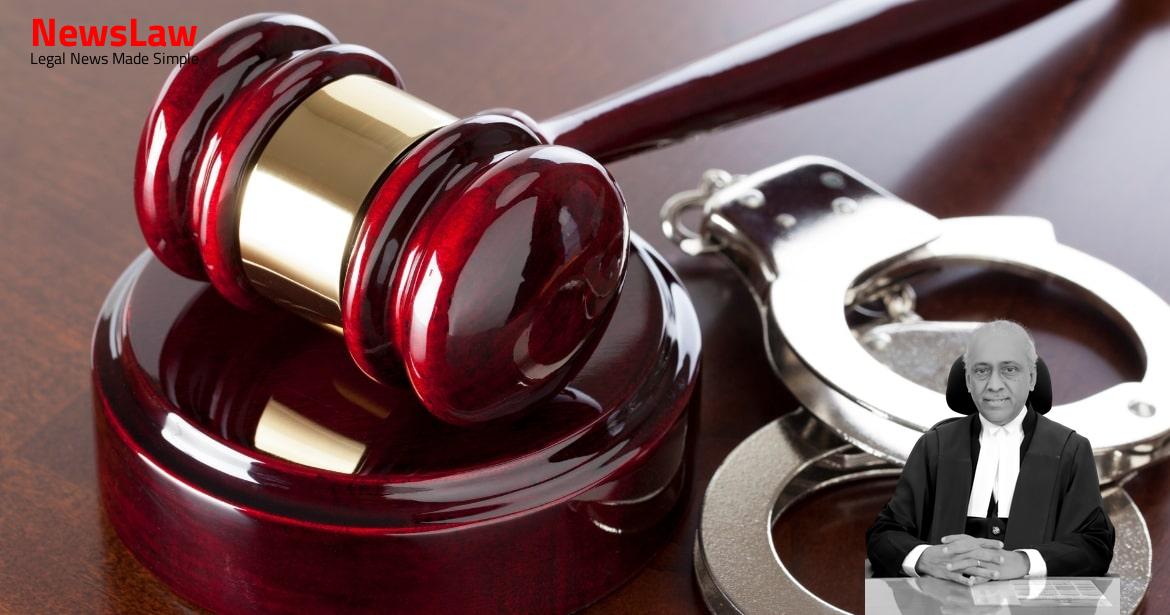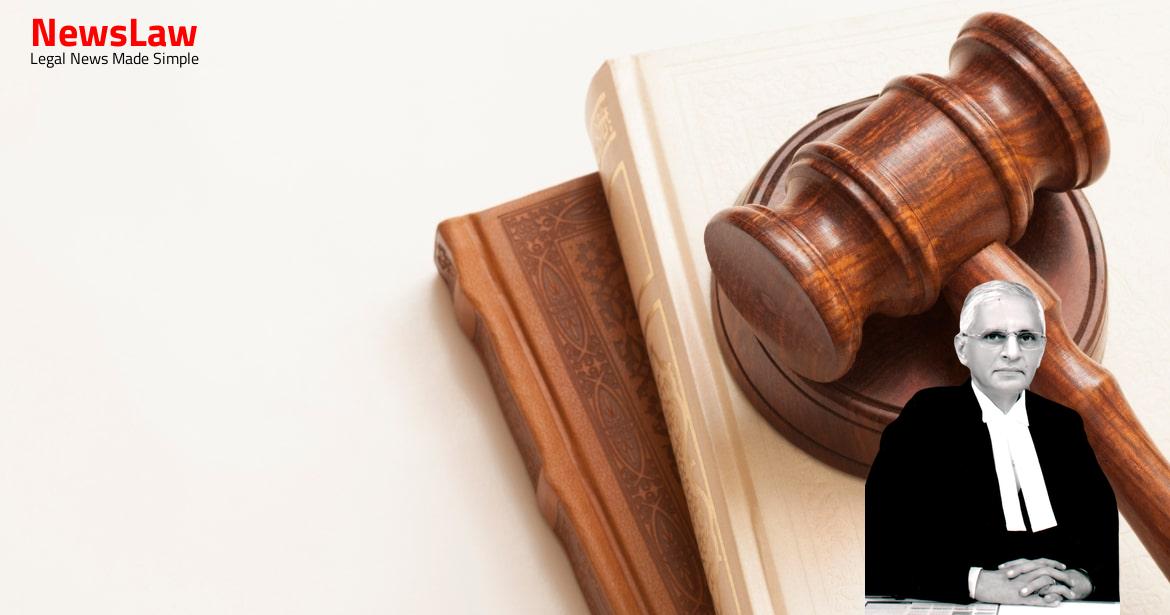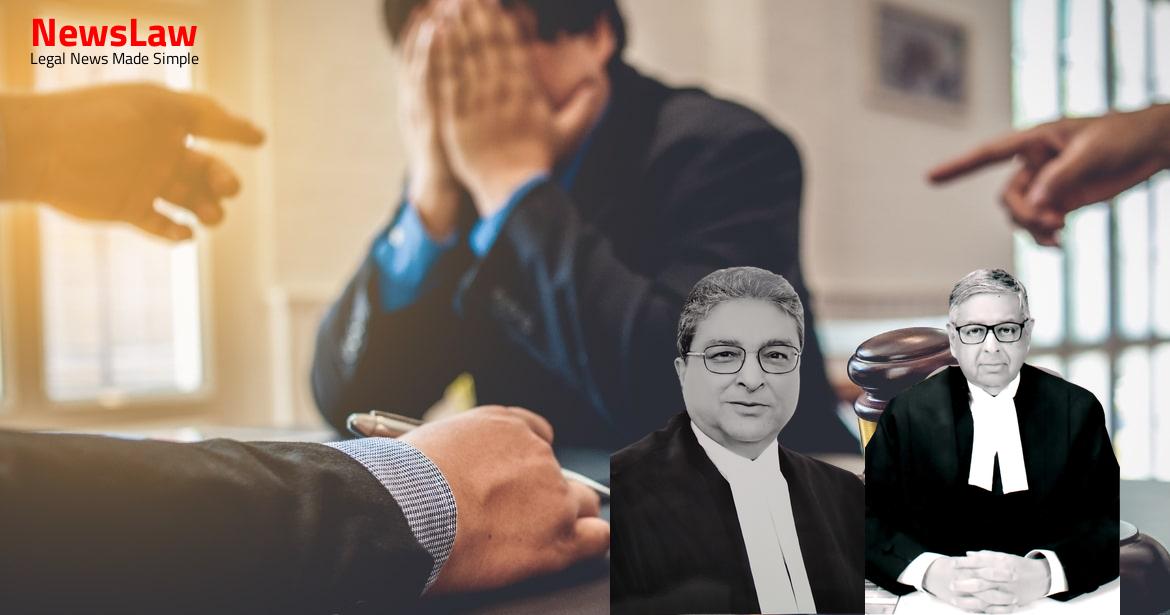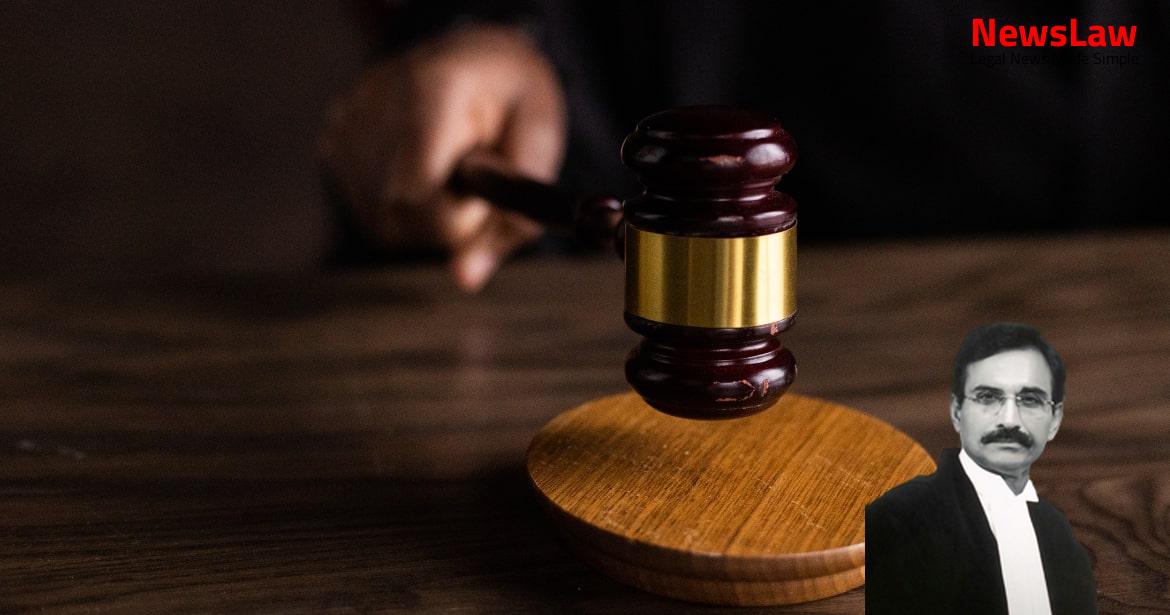In a significant legal battle, the Mumbai Municipal Corporation faced off against Bhimsen P. Singh and others in a dispute over land ownership and demolition of structures. The High Court’s rulings on granting Transferable Development Rights and alternative accommodation have sparked debate between the parties. Dive into the details of this complex case involving private interests and public policies.
Facts
- The Municipal Corporation of Bombay challenged the High Court’s order through Special Leave Petitions.
- The High Court did not grant the relief of restitution but provided different reliefs to the landowners and tenants.
- The petitioners in Writ Petition No.3090 of 2017 claimed ownership of the land and structures taken by the Municipal Corporation.
- The Corporation did not follow due process of law before demolishing the structures according to the High Court findings.
- The High Court ordered the Municipal Corporation to consider granting Transferable Development Rights/Development Right Certificate to the landowner.
- The Municipal Corporation proposed to impose terms and conditions on the relief granted to the petitioners.
- The High Court’s order provided allotment of alternative sites to tenants and consideration of TDR/DRC to landowners, resulting in the current special leave petitions.
Also Read: Jurisdictional Analysis in Transfer Petition
Issue
- High Court overlooked the readiness of Municipal Corporation to grant TDR to the original landowner.
- High Court did not consider the prescription of a Regular Line in 1974 for road widening.
- The questions raised did not technically qualify as substantial questions of law.
- Despite this, the Court ordered notice in the special leave petitions and granted a stay of operation of the judgment.
Also Read: Petitioner v. Respondent: Specific Performance Suit Dismissed
Arguments
- Out of eleven respondents who filed Writ Petitions, four, namely Shri Bhimsen P. Singh, Mr. Anil Surajman Shukla, Mr. Muniram Shivpujan Gupta, and Mr. Kantilal Girdhar Gandhi, are eligible for alternative premises as per Mumbai Municipal Corporation policy.
- 4 structures’ occupants found eligible for alternate accommodation, with a possibility of 3 more structures becoming eligible.
- Remaining seven respondents: 4 ineligible as per Municipal Corporation guidelines, 3 ineligible under the Slum Rehabilitation Act.
- Grant of alternate accommodation not a right, but subject to fulfilling parameters set by Municipal Corporation to avoid disparities.
- Ad-hoc identification without supporting documents may create disparities.
- Senior Counsel challenged the findings of the High Court Legal Services Committee for lacking documentary evidence
- Senior Counsel argued that the findings did not have a solid basis
- The issue raised was the lack of documentary support for the Committee’s conclusions
Also Read: Analysis of Excise Duty Valuation Rules
Analysis
- The dispute has boiled down to only four tenants after special leave petitions were disposed of by the order dated 05.12.2018.
- The Municipal Corporation conceded that three out of the seven tenants are eligible for benefits such as TDR.
- The Corporation agreed that four out of eleven tenants are entitled to alternate accommodation.
- The legal heirs of the original landowner and tenants were involved in the petitions.
- The Corporation had agreed to offer TDR to persons claiming to be the owners of the land.
- Important findings in the High Court Legal Services Committee Report showed eligibility of tenants for permanent alternative accommodation.
- The Corporation’s objections to the Report claimed lack of proof regarding pre-1962 superstructures and slum declaration.
- The High Court balanced private interests and public interest in its decision.
- The Municipal Corporation demolished superstructures and took possession in a high-handed manner.
- The Corporation’s senior counsel conceded that certain tenants are entitled to relief.
- The findings of fact regarding the existence of superstructures prior to 1961 cannot be interfered with in a special leave petition under Article 136 of the Constitution of India.
- The High Court’s findings are not considered perverse in this case.
- The Court can only interfere with findings of fact if they shock the conscience of the Court.
Decision
- The High Court has disposed of the Writ Petitions with directions for allotment of tenements to petitioners whose premises were demolished.
- The Mumbai Municipal Corporation is directed to allot tenements of equal size to the demolished ones in the vicinity of the demolished premises by 30th June, 2018.
- The allotment of premises should have a frontage on any main road and be free of cost.
- The decision was made based on the Municipal Corporation’s stand that other tenants were not eligible for alternate accommodation as per guidelines.
- Four special leave petitions were disposed of on 05.12.2018 after the Municipal Corporation found the petitioners eligible for alternate accommodation.
- The Bombay High Court Legal Services Committee was directed to examine relevant records after disposing of four writ petitions.
Case Title: MUNICIPAL CORPORATION, MUNICIPAL CORPORATION OF GREATER MUMBAI Vs. PANNA MAHESH CHANDRA DAVE (2020 INSC 117)
Case Number: SLP(C) No.-018065 / 2018



